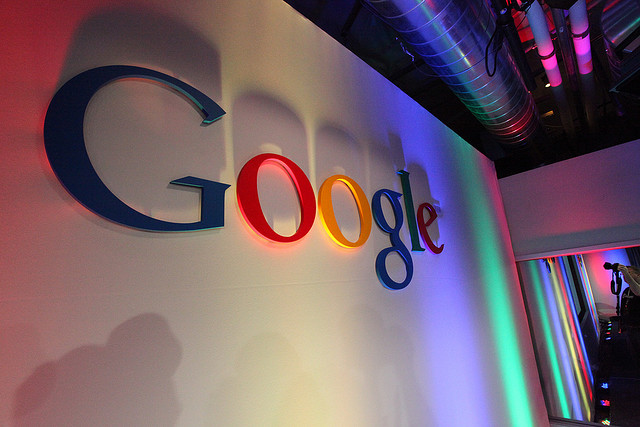With recent reports that Google is in the running to buy video site Hulu, it’s getting harder to make the case that the search giant is not a media company.
A lot could be at stake for Google in that definition and its ability to co-exist peacefully with media companies that rely on it for traffic from search and revenue from such Google properties as AdMob, DoubleClick or AdWords. And other media companies also compete with Google for much of that revenue.
There could be regulatory implications, as well. If Google is a media company, could it come under Federal Communications Commission oversight? What legal protections and liabilities — copyright, fair use, shield laws, free speech — might further affect the search giant?
Google portrays itself as a “digital Switzerland,” a neutral search engine that favors no content company and no advertisers, writes the New Yorker’s Ken Auletta in his book “Googled: The End of the World As We Know It.”
But, Auletta said — emphatically — in a phone conversation we had recently that Google is a media company.
Here’s the entire phone conversation I had with Auletta:
Former CEO Eric Schmidt, when asked about Google’s aspirations, told Auletta, “I hope we will become the first $100 billion media company.” Auletta told me, “He didn’t say digital company. He didn’t say search company … They may deny it because they think it looks bad, and creates some political havoc for them, but they are competing with Hollywood studios and book publishers and newspapers and television … That’s the nature of who Google is.”
If it does buy Hulu, Google’s leaders could make the case, as they did after buying YouTube and launching the Google Content Network, that they are merely “hosts” of content, “not authors.” Auletta calls that “splitting hairs,” and points out in the book that Google’s assertion “is akin to saying that ABC merely hosts the programs it chooses to pay for and air.”
Revenue From Search, Not Content Creation

Perhaps one could argue that Google is not a media company because its primary revenue stream is from ads applied to machine-driven search and its culture is driven by engineering algorithms and measurement, not the type of creativity inherent in writing, producing and editing.
But even if humans don’t choose what content comes to the fore, algorithms written by people do. I could argue that Google via its algorithms creates content when its search engines assemble pages from which its users derive meaning and even delight.
Google execs noted this year that their engineers tweaked their search algorithms to bring “high-quality” content to the fore. That is, literally, a value judgment, and one that is arguably editorial in nature.
Disrupting the Media Business
It is inarguable that Google has disrupted nearly every sector of the media industry, and that many corners of the industry have at one time or another openly declared battle, from book publishers who sued then settled over Google Books’ scanning project (a settlement a judge this year called into question) to ad behemoth WPP’s CEO Sir Martin Sorrell, who called Google a “frenemy” — a friend and enemy at the same time.
According to eMarketer, Google will bring in 43.5 percent of all U.S. online advertising revenue this year. And stats from the Interactive Advertising Bureau show that search has accounted for most of the growth in digital advertising.
Google certainly manages, distributes, brings awareness to, and makes money from content — all of which are core components of a media company and part of the “media value chain” I devised based on research reports from IBM [PDF file] for a media course I teach (syllabus) that also uses Auletta’s book.
Google has, as former Viacom CEO Mel Karmazin said, according to Auletta, been “f—-ing with the magic” of selling advertising to clients who couldn’t tell how much of what they were buying was based on “sizzle,” a perception, rather than quantifiable measurement of an ad’s effectiveness in selling a product or service.
‘Media Companies Have a Lot to Learn from Google’
Auletta argues, too, that Google is a new kind of media company, one based on engineering thinking, on always asking why things have to be the way they have been before, on reducing inefficiencies, on believing in data rather than gut feel, on transactions rather than relationships, on openly showing advertisers whether their ads generate action, and on measuring interactions with content in great detail, via Google Analytics and other means.
Media companies have “much more to learn [from Google] than Google has to learn from them,” Auletta told me. “They have to bring engineers into more prominence in these media companies, and listen to those engineers. Because in the new world, the engineer is really a content creator. If that engineer who created Facebook allows you to spend two hours a day on Facebook, which many people do, that engineer is a content creator.”
If Auletta’s right, that a platform is content, there’s no question about whether we should consider Google a media company. And if it buys Hulu, it would be taking one more big step in that direction.
An award-winning former managing editor at ABCNews.com and an MBA (with honors), Dorian Benkoil handles marketing and sales strategies for MediaShift. He is SVP at Teeming Media, a strategic media consultancy focused on attracting, engaging, and activating communities through digital media. He tweets at @dbenk.

